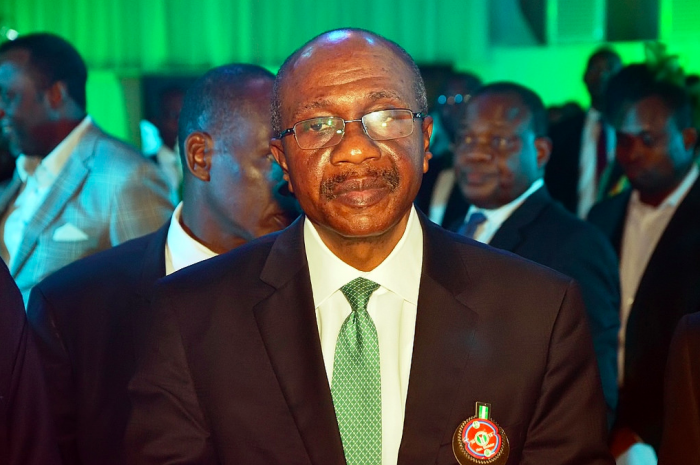The Governor of the Central Bank of Nigeria, Godwin Emefiele has said that the challenges facing Nigeria’s economy are of a global dimension and not peculiar to Nigeria.
Emefiele said this while given his speech at the 55th Annual Bankers Dinner hosted by the Chartered Institute of Bankers of Nigeria (CIBN) 0n Friday, November 27, 2020.
In his opening address, Mr. Emefiele congratulated the CIBN for the annual event, which he was attending for the sixth time since assuming the role of CBN Governor in June 2014.
According to him, each of the dinners provided him ample opportunity to discuss with the key stakeholders in the banking and finance community on critical issues and events shaping the economy, as well as policy measures put in place by the CBN towards revamping and growing the economy.
He enumerated several issues and challenges facing the economy, which were not peculiar to Nigeria but global. Hence, nothing for the country to panic about.
In his words, “We confess that the problem we face today is of a global dimension. The Global Economy is challenged, just like the Nigerian economy. My appeal to our media analysts is that in the course of conducting their analysis of the Nigerian economy, they should realise that their public comments, particularly if they are alarmist, could create panic in our environment.
“We cherish their counsel, but urge that they be more constructive in their pungent criticism as this could hamper our efforts to return our country and economy back to recovery. When you over dramatize a problem, you create panic that slows the process of recovery.”
According to Emefiele, the times have been challenging, as the COVID-19 pandemic completely ravaged the global economy, but it was quite reassuring that a solution would soon emerge, with the reports of developments of appropriate vaccines by several firms to tackle the dreaded disease.
Mr. Emefiele said, “Like other economies, the Nigerian economy was not immune from the COVID-19 shock in 2020. Nigeria’s gross domestic product (GDP) contracted by -3.4 percent in the third quarter, a welcome improvement from the – 6.1 percent recorded in the second quarter. The negative rate of growth was due to a series of external factors in addition to the lockdown measures, imposed in order to curtail the spread of the virus.”
Emefiele challenged the banks to optimally harness the huge value-chain opportunities in several sectors of the economy through their intermediation functions, saying:
“Let me also add that while COVID-19 has brought on several challenges to our economy and indeed the banking sector, it offers a unique opportunity for us to build a more resilient economy that is better able to contain external shocks, whilst supporting growth and wealth creation in key sectors of our economy.
“Proactive steps on the part of stakeholders in the banking and financial system in supporting the growth of sectors such as agriculture, ICT and infrastructure, will strengthen our ability to deal with the challenges that have been brought on by COVID-19, while enabling the growth of our economy in general.”
Bottom line
With a sustained and consistent implementation of the intervention measures, the Nigerian economy is expected to rebound from recession by the first quarter of 2021 (Q1 2021).
However, this depends to a large extent, on the full restoration of economic activities in key sectors, as well as the production of appropriate COVID vaccines that will be made available to millions of people across the world.
